First-year Engineering Curriculum
School of Engineering first and second year students follow a common core curriculum. Students declare their engineering major at the end of the first year.
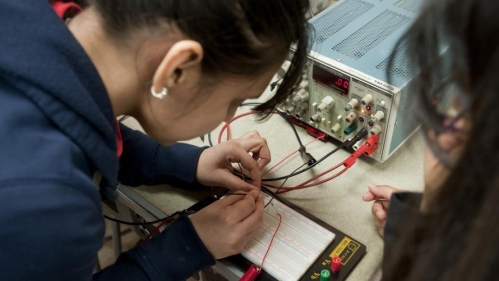
Electrical & Computer Engineering Undergraduate Program
What is Electrical & Computer Engineering
Electrical engineers are in the forefront of technology that continually transforms our rapidly changing world. From developing advanced navigation systems and self-piloted vehicles to designing “smart” homes and cyber security systems, electrical and computer engineers have a profound impact on how we live and how society will continue to progress for generations to come.
Program Overview
Rutgers offers a dynamic electrical and computer engineering program with world-class labs in innovative fields including cloud computing, wireless/mobile communications, virtual reality, signal processing, and nanotechnology.
We offer two curriculum options for undergraduate students: electrical engineering and computer engineering, allowing students to focus on a specific area by the appropriate selection of elective courses.
Students may also pursue a 5-year dual degree with a second major, a 5-year combined Bachelor of Science/Master of Science (B.S./M.S.) degree, or a 5-year Bachelor of Science/Master of Business Administration (B.S./M.B.A.) degree.
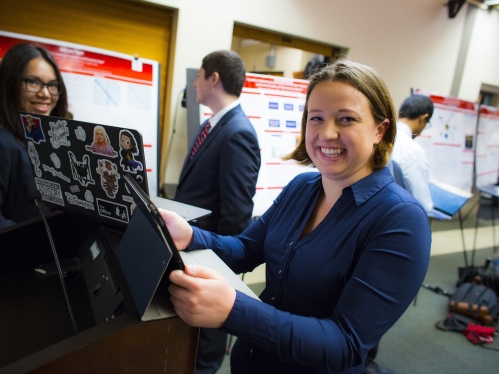
Coursework
The electrical and computer engineering curriculum has developed into emerging technology fields such as energy (power electronics, solar cells, smart grid), environment (sensors and sensor networks for environmental protection), and bioelectronics and biophotonics. A background in ECE fundamentals is provided by coursework in linear systems, electronic devices and circuits, digital signal processing, and communications engineering, logic design, computer architecture, computer graphics and vision, robotics, and virtual reality technology, etc. In addition, students have considerable freedom to choose elective courses in the other sciences, engineering and humanity areas.
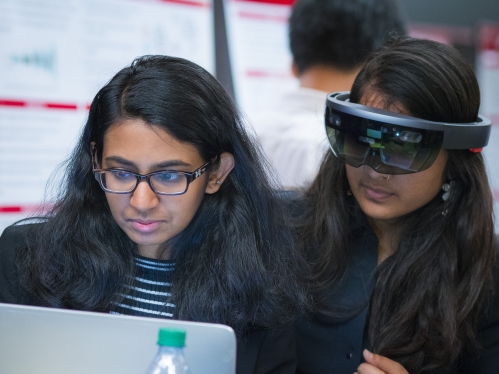
Beyond Academics
Hands-on Experience
Students gain invaluable, relevant work experience and make lasting professional network connections through industry internships and co-op programs.
Students who participate in the Co-op Program earn academic credit and a salary but, more importantly, gain valuable technical and business experience and make valuable networking connections at companies that have included Blackrock, among others. Many students also do summer internships at leading technology companies including Siemens, L3Harris, Johnson & Johnson, and Verizon Wireless. Many of these students are offered full-time positions after graduation.
Seniors work in teams on Capstone Design projects in a wide range of areas including sensor, control, and DSP systems; communications, including wireless communication systems, communication system design and computer networks; software engineering; robotics; virtual reality and circuit and microelectronic systems.
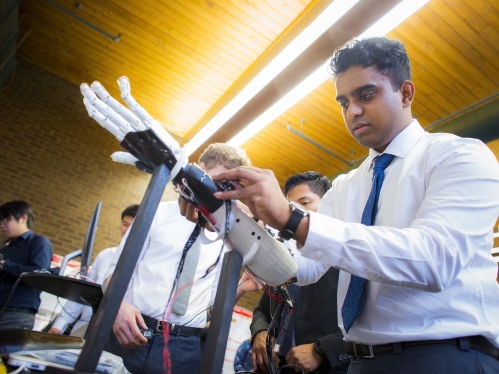
Undergraduate Research
Guided by an award-winning faculty, students can engage in groundbreaking research in areas ranging from cloud computing to nanotechnology to biorobotics, as well as wireless information networks, computer vision, digital signal processing, and digital logic design, microelectronics, and computer architecture.
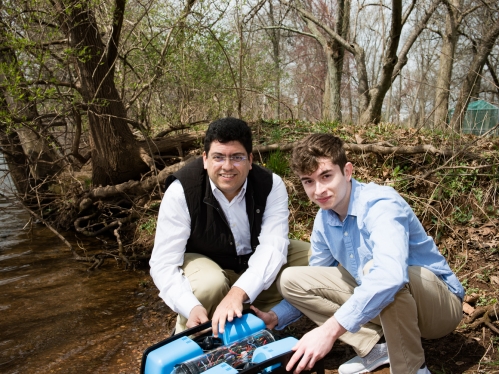
Putting Your Degree to Work
Our graduates are known for their innovative spirit and their ability to integrate effectively in the commercial environment. They are in high demand by industry and are employed at excellent salaries by prominent companies. ECE students take jobs in industry and commerce, both at large Fortune 500 companies or at small startups.
Professional opportunities include:
• Computer Engineering
• Wireless Communications
• Electronics
• Semiconductors
• Signal Processing
• Telecommunications
• Power Industry
• Cybersecurity
• Biomedicine
• Financial Engineer






Learn More
First-year Engineering Curriculum
School of Engineering first and second year students follow a common core curriculum. Students declare their engineering major at the end of the first year.
Electrical and Computer Engineering Curriculum
Electrical and Computer Engineering students follow a curriculum as juniors and seniors based on their interest area of focus. This includes an electrical concentration or a computer concentration.